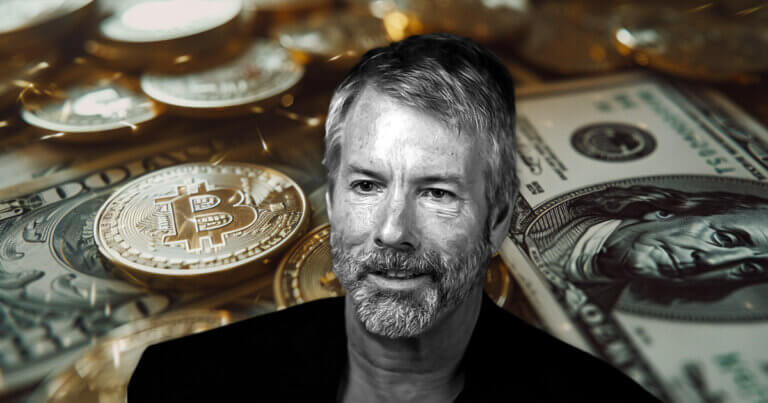 Saylor lauds Bitcoin strategy as catalyst for future economic empires
Saylor lauds Bitcoin strategy as catalyst for future economic empires Saylor lauds Bitcoin strategy as catalyst for future economic empires
He also praised the introduction of Senator Cynthia Lummis' strategic Bitcoin reserve bill and its official introduction in the Senate

Cover art/illustration via CryptoSlate. Image includes combined content which may include AI-generated content.
MicroStrategy executive chairman Michael Saylor strongly endorsed the idea of a strategic Bitcoin reserve during a CNBC interview, framing it as a transformative step for nation-states, corporations, and individuals alike.
The reaffirmation comes as Bitcoin rebounds by over 5% after a significant downturn, bolstering the confidence of crypto enthusiasts and investors.
The flagship crypto was trading at $56,414 as of press time, up 3.32% over the last 24 hours, based on CryptoSlate data.
‘Catalytic’ moment
Saylor pointed to the Bitcoin 2024 conference in Nashville as a pivotal moment for the crypto industry. The event attracted high-profile figures, including presidential candidates, governors, senators, CEOs, and billionaire investors.
He also praised the introduction of Senator Cynthia Lummis’ strategic Bitcoin reserve bill and its official introduction in the Senate. Saylor said it marked a significant shift in perception, comparing the moment to historic acquisitions such as the Louisiana Purchase. He noted:
“The Overton window shifted. Now it’s possible to discuss nation-states holding Bitcoin on the balance sheet.”
The Bitcoin Act aims to create a stockpile of BTC that would only be used to reduce the country’s national debt. It would also mandate the government to acquire 200,000 BTC annually for five years.
Saylor argued that Bitcoin’s nature as scarce and desirable digital property makes it an attractive asset for nation-states. He likened the acquisition of Bitcoin to purchasing valuable real estate, suggesting it could lay the foundation for future economic empires.
He said:
“Everybody’s going to be doing business in cyberspace. Bitcoin is scarce, desirable digital property. It’s a great idea to trade a little bit of currency or paper for some place that billions of people are going to be in 100 years.”
When questioned about Bitcoin’s decentralized ethos, Saylor maintained that the fundamental value of Bitcoin as a property asset supersedes the traditional concerns over government involvement. He compared the acquisition of Bitcoin to purchasing valuable real estate, suggesting it lays the foundation for future economic empires.
Discussing the upcoming elections, Saylor outlined the competing interests between traditional finance and the burgeoning digital asset economy. He criticized the limitations of the traditional financial system, highlighting the constant availability of Bitcoin as a 21st-century financial tool.
According to Saylor:
“Bitcoin operates 100 percent of the time. Why are we stuck with 20th-century banks, money markets, and capital markets that shut us down at 4 p.m. on Friday and don’t open up until 9:30 on Monday?”
MicroStrategy to continue stacking
Saylor emphasized that MicroStrategy remains committed to acquiring more Bitcoin, leveraging various financial strategies to do so. The company plans to sell equity, issue convertible bonds, and utilize operating cash flow to increase Bitcoin holdings per share.
He explained:
“MicroStrategy is a Bitcoin development company. We’re an operating firm, and that means we have some advantages over a trust company. We’ve got permanent capital. We can generate cash flows. We’ve got operating flexibility.”
Despite concerns about the performance of MicroStrategy’s core business, Saylor described it as stable and a “cash cow,” indicating that the company has ample room to issue debt and explore other strategic alternatives to support its Bitcoin accumulation strategy.
He added:
“Our shareholders want more Bitcoin per share. They think if we get more Bitcoin per share, that’s creating shareholder value.”




 Farside Investors
Farside Investors 






































































































